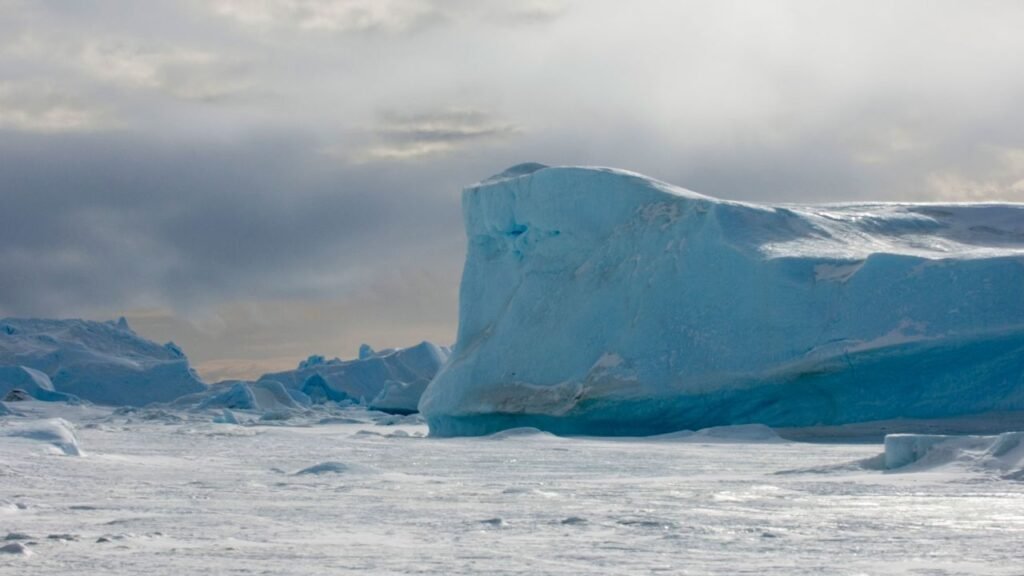Antarctic sea ice has reached record low levels for the second time in two years, with some scientists alarmed that dramatic drops are a signal the climate crisis may now be more clearly influencing this vast, complex, and isolated region. Scientists sound the alarm as Antarctic sea ice hits record low.
The sea ice that fringes Antarctica dropped to just 737,000 square miles (1.91 million square kilometers) on February 13, according to the National Snow and Ice Data Center, or NSIDC, below the previous record of 741,000 square miles (1.92 million square kilometers) set on February 25 last year.
Sea ice could still shrink further; the lowest level of the southern summer may not be reached for more than a week.
The last two years mark the only time that sea ice levels have dipped below 2 million square miles since satellites began monitoring it in 1978.
It’s “not just ‘barely a record low,’” Ted Scambos, a glaciologist at the University of Colorado Boulder, told sources.
“It’s on a very steep downward trend.” Unlike the Arctic, where the rate of sea ice loss has followed a fairly consistent downward trajectory as climate change accelerates, the Antarctic sea ice extent has swung up and down, making it harder to figure out how the continent and its surrounding ocean are responding to global heating.
The two polar regions are very different. While the Arctic is an ocean surrounded by continents, Antarctica is a continent surrounded by the ocean this means its sea ice can grow outward, unconstrained by land.
Antarctic ice tends to be thinner than Arctic ice, with greater highs in the winter and steeper declines in the summer. Scientists sound the alarm as Antarctic sea ice hits record low.
Climate models projected declines in Antarctic sea ice that were similar to the Arctic, but until recently the region was behaving completely differently than those models predicted.
It hit a record high for winter sea ice extent in 2014 when it reached 7.76 million square miles, which seemed to support the idea that the Antarctic may be relatively insulated from global warming.
But in 2016, something changed. Scientists began observing a steep downward trend.
At first, some put it down to the usual variability of this vastly complex continent, with its diverse, intertwined climate systems. But after two low sea ice records in a row, scientists are becoming concerned.
“The question is, has climate change reached Antarctica? Is this the beginning of the end? Will the sea ice disappear for good in the coming years in the summer?” Christian Haas, head of the Sea Ice Physics Research Section at the Alfred Wegener Institute in Germany, told sources.
Nuestro nado en Antártica de 2.5km le da la vuelta al mundo y se acerca la certificación de los Records Guinness!!! Gracias por tanto @Armada_Chile @AntarcticaSouth @bancodechile por creer que era posible, fueron 45min en agua a 2°C💙🇨🇱❄️🧜🏽♀️ https://t.co/2VyYlXWcCd
— Bárbara Hernández H. (@Barbarellah) February 21, 2023
